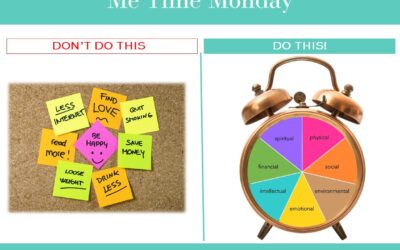While most of you may think I mean Valentine’s Day, I am actually focused on those family members performing that “labor of love” – caring for a parent, spouse or other loved one who has a chronic illness, disability or is simply just getting older.
While love is in the air and red hearts are in every storefront window, the hearts I am more concerned about are those of the family caregivers.
 Heart Disease Kills and Women, Especially Caregivers, are the Target
Heart Disease Kills and Women, Especially Caregivers, are the Target
The American Heart Association (AHA) tells us that heart disease is the Number One killer of women – twice as many women die from stroke or cardiovascular disease than all cancers combined, including breast cancer. In fact, heart disease is the cause of 1 in 3 deaths every year with someone dying every minute.
However, unlike Alzheimer’s disease which has no cure and cannot be prevented, 80 percent of cardiac events in women could be prevented if women made the right choices for their hearts involving diet, exercise and abstinence from smoking.
While all women must pay attention to maintaining their heart health, studies show that caregivers are more at risk than the general population. In fact, a study by the Commonwealth Fund found that caregivers have twice the risk of developing a chronic illness such as heart disease based in part on the prolonged stress they encounter during their caregiving journey.
We know from studies conducted by the National Alliance for Caregiving, that caregivers often turn to bad habits to cope with the stress of caregiving. Caregivers who reported their health was impacted also reported that they began smoking again, they stopped exercising, they had no time for sound nutrition often relying on fast food solutions for their diet. This in turn caused weight gain and lowered their energy levels so their ability to continue to care for a loved one is compromised.
After all, if the nation’s 65 million caregivers become ill, who will care for their loved ones?
Unfortunately, the challenges that caregivers face when they take on the role of caring for a loved one – no time for themselves, increased stress, insomnia, etc. – can prohibit or prevent them from finding the time to care for themselves. This is the big red flag we have to wave this month to help caregivers find that “Me Time” and avoid the minefields which blow up their own self-care plan.
Go Red This Month and Tell A Few Friends
To raise awareness among women, the AHA promotes its Go Red for Women campaign launching this month. The AHA began this campaign because their studies found that only 55 percent of women realize heart disease is their No. 1 killer and less than half know what are considered healthy levels for cardiovascular risk factors like blood pressure and cholesterol.
On the Go Red for Women site you will find valuable tools such as the Go Red Check Up and how to stay heart healthy at any age. There is also information about knowing the warning signs of a heart attack or a stroke (different signs of which everyone should be aware). To add fashion to the mix, AHA also celebrates National Wear Red Day which is Friday, February 3 encouraging everyone to wear red to show your support for women and the prevention of heart disease.
Tell 5 Friends and Follow These 5 Heart Health Tips
The AHA also has a campaign to have every woman tell five friends about heart disease prevention. I thought I would go them one better – and reach out to the millions of people – mostly Baby Boomer women – who read my blog and the millions of family caregivers across the country who are at risk. Here is what I am sharing with you – take your “Me Time Monday” five minutes and read this list of things you can do to prevent heart disease:
These five tips for women age 50 and over are from the American Heart Association:
- Know your family history – you have a greater risk if a parent or grandparent had heart disease. A study released last year shows that a mother’s stroke history can help predict her daughter’s risk of heart attack or stroke.
- Don’t smoke and avoid second-hand smoke.
- Drink in moderation – while alcohol adds calories to your diet that can cause weight gain and your blood pressure can increase if you drink too much, four-fluid ounces of red wine a day can be all right according to some physicians.
- Eat a heart healthy diet – lots of fruits, vegetables, omega-3 fatty acids such as salmon and fiber-rich whole grains. Also, stick to less than 1,500 mg of sodium a day and avoid sugar-sweetened beverages.
- Know your numbers – do you know what your good and bad cholesterol numbers are and what they should be? How about your Body Mass Index (BMI)? Are you getting at least 30 minutes of cardio exercise a day? Do you have a waist measurement of 35 inches or less? If you do not know your numbers – find out today by checking the Weight Control Information Network maintained by the U.S. Department of Health and Human Services and the National Institutes of Health to find out what these numbers mean and how to maintain healthy scores.
You can also check out the Caregiving Club’s Me Time Monday video and tip that we have on Heart Health and Caregiving.
Doing all the right things is hard enough for the average woman, but when you are caring for a loved one, it becomes an even more daunting task. When I have spoken to caregivers, they say to me, “Give me a break – literally! How can I find time to exercise or get more sleep? I don’t even have time to take a shower and I eat standing up in the kitchen because I have no time.”
No one said it was easy – it is hard to find that balance between self-care and caregiving. But, by taking care of your heart health, you will ensure you continue to be the heart of your family.




In reading the story about Sylvia McKay’s caregiving experience with her husband John, is how I learned about your blog, and the book your writing about celebrity caregivers.
Celebrities sell books and bring much needed attention to such caregiving issues like Alzheimer’s disease.
BUT caregivers are celebrities too. Putting our lives on hold, to care for our loved ones. My mom was diagnosed with Alzheimer’s disease in 2003. And when those loved ones pass on (mom died 12/02/11), our role as caregiver does not end, but continues as an advocate educating and raising awarness about Alzheimer’s.
Karen – I SO agree with you – every caregiver is a superstar/celebrity in my mind! My rationale for starting with celebrities who are caregivers is to get as much attention as possible for a variety of caregiving situations – caring for your spouse, caring for your parent, caring for a child with disabilities or chronic illness such as autism – every story is important and by showing that celebrities go through the same emotional struggles as all caregivers I hope to support a larger movement around caregiving. And, I found in my blog articles – whether on my Web site or on other sites I write for – the celebrity stories always get the most attention which is my goal – shine a spotlight on the 65 million wonderful caregivers in our country today. Thank you for your comments and I hope you will read the book when it comes out this November (and I have other articles, TV segments, etc. in the works so I am ALWAYS wanting to hear the stories of caregivers from all aspects of life that I can share so we can all learn from these lessons of love and caring.)